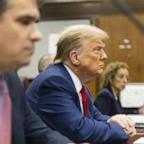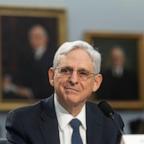Obama warns Wall Street against high-risk behavior
NEW YORK -- President Obama called on Wall Street executives not to "go back to the days of reckless behavior and unchecked excess at the heart of this crisis," as he laid out "the most ambitious overhaul of the financial system since the Great Depression."
Obama was speaking in New York on Monday, on the one-year anniversary of the collapse of Lehman Bros., an event that led to the worst financial crisis the U.S. has faced since the Great Depression. He stressed that even though the economy is "beginning a return to normalcy," the country needs strong, updated rules and regulations to guard against future risks.
"Obama's speech was a combination of warning Wall Street not to get too quick in returning to its aggressive practices, while at the same time voicing support for the free enterprise system," says Sean Egan, founding principal of Egan-Jones ratings agency.
Obama warned that Wall Street firms are "misreading the moment," and said "some have so readily returned to (the old ways, which) underscores the need for change, and change now."
Egan says Obama was directly referring to firms like Goldman Sachs, JPMorgan Chase and Morgan Stanley that were among the first to pay back Troubled Asset Relief Program money to the government, and since then have set aside large portions of their revenue for compensation — barely months after being bailed out by the American taxpayer.
"His message is that restraint is the right thing at this time," says Egan.
Obama went on to outline the key elements of reforming the financial system. Among the various proposals:
•He emphasized the setting up of an agency that would be explicitly responsible for protecting consumers. The agency would make sure there are no hidden fees attached to mortgages or financial penalties in credit cards, for instance. "By setting ground rules, we'll increase the kind of competition that actually provides people better and greater choices," he said.
•Obama also promised to close gaps in financial regulation, set up a "systemic risk" council that will be responsible for oversight of the largest, most interconnected firms and also find a way to close a large troubled institution without threatening the economy.




